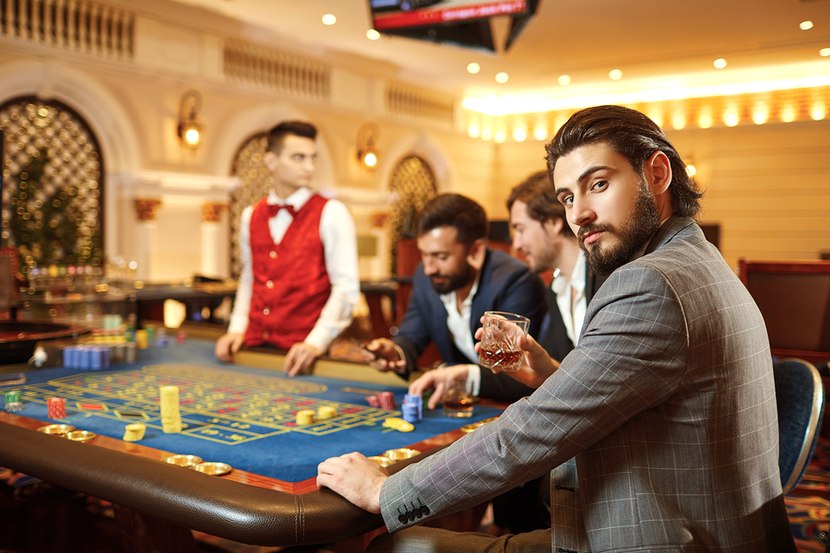
In the lively realm of casinos, where the air pulses with excitement and the clattering of chips fills the environment, the position of a game dealer is both essential and captivating. Daily, these experienced professionals step into a world where fortune and tactics intertwine, leading players through the highs and lows of their chosen casino titles. From card games like blackjack and texas hold ’em to the revolving wheels of the roulette table, dealers facilitate the action while guaranteeing that each game operates smoothly and fairly.
As the day breaks on another hectic day, a casino dealer gets ready to dive in this dynamic environment. Their duties extend beyond merely distributing cards or spinning a wheel; they are also performers, customer service representatives, and keepers of the game regulations. Each workday brings new obstacles and experiences, making every day unique in the life of a dealer. This insider look will examine the daily routine of a casino dealer, highlighting the expertise and insights that make this career both exciting and fulfilling.
The Role of a Gambling Table Dealer
A gambling table dealer is at the heart of the gambling experience, orchestrating the progress of the game while making sure that players are engaged and entertained. Their primary responsibility is to oversee the game, which includes distributing cards, spinning the wheel, or managing the chips, based on the game being played. Dealers must have a deep understanding of the regulations and regulations governing each type of game, while also upholding a friendly and approachable demeanor to improve the gambling atmosphere.
In addition to managing the play, dealers must also monitor on the players and the environment around the table. This includes monitoring for any signs of cheating, making sure that everyone is following the rules, and resolving any conflicts that may arise among players. Strong communication skills are essential, as croupiers often provide explanations about the game’s mechanics and offer assistance to those who may be novice to gambling games.
Moreover, a dealer’s role extends beyond just the mechanical aspects of the game. They play a crucial part in creating an immersive experience for the players. This requires building a connection with patrons, being sensitive to their needs, and often injecting an element of entertainment into the play. It’s this mix of talent, vigilance, and people skills that makes the position of a casino table dealer both demanding and fulfilling in the dynamic world of casino games.
Daily Responsibilities and Challenges
One of the key responsibilities of a dealer in a casino is to supervise the multiple games available at their table, ensuring a seamless and satisfying experience for players. Dealers must be adept at dealing cards, managing chips, and maintaining the continuity of the game. This necessitates a sharp understanding of the rules of each game, from blackjack to roulette, and the ability to address players’ questions while maintaining the game progressing. Attention to precision is paramount, as dealers must track bets, pay out winnings accurately, and watch for any cheating or discrepancies at the table.
In addition to supervising the game per se, dealers encounter challenges such as dealing with difficult players. The casino environment can be stressful, particularly during intense games, and a dealer must remain composed and professional at all times. They need strong interpersonal skills to navigate interactions with players who may be frustrated about losses or dissatisfied with the game’s speed. Handling these situations delicately is crucial in ensuring a positive atmosphere on the casino floor.
Another major responsibility is maintaining the integrity of the game. Dealers must be alert and attentive, watching for any signs of player cooperation or cheating among players. This entails not only a strong knowledge of the games but also an awareness of human behavior. They must also adhere to the casino’s rules and procedures, taking part in regular training sessions to stay informed on rules and protocols. Balancing these responsibilities while providing excellent customer service is what makes the role both challenging and fulfilling for a dealer in a casino.
Qualities and Traits for Achievement
A successful casino game dealer must have excellent communication skills. This includes merely the ability to explicitly explain game rules and procedures to players but also the capacity to connect with them in a cordial and professional manner. Building rapport with patrons can enhance the gaming experience and promote repeat visits to the casino. yg168 Strong communication enables dealers to manage tables seamlessly while ensuring that players feel valued.
Moreover, strong mathematical skills are essential for a dealer. Quick calculations are often required to follow bets, payouts, and game outcomes in the moment. A dealer’s ability to perform these math operations accurately and swiftly adds to the overall efficiency of the game. This skill helps in maintaining the flow of play and in minimizing disputes or misunderstandings with players, which is crucial in a rapid casino environment.
Lastly, an ideal casino game dealer should exhibit integrity and professionalism at all times. Trust is a key component of the gaming experience, and players must feel confident that the games are conducted fairly and openly. A dealer’s dedication to upholding high ethical standards fosters a positive atmosphere at the table and enhances the casino’s reputation. Being consistent in behavior ensures that dealers leave a memorable impression on guests, which can lead to a faithful customer base.
